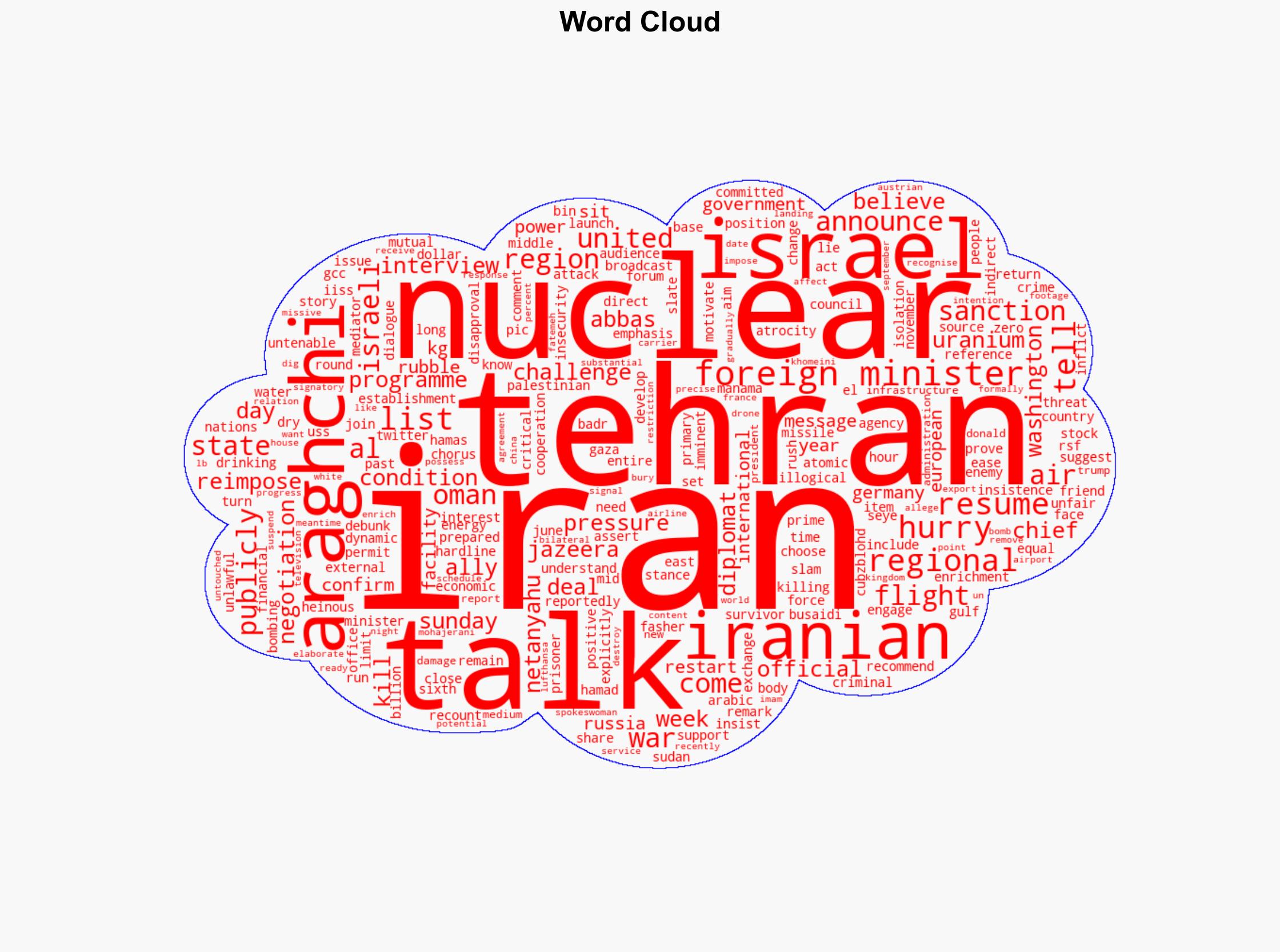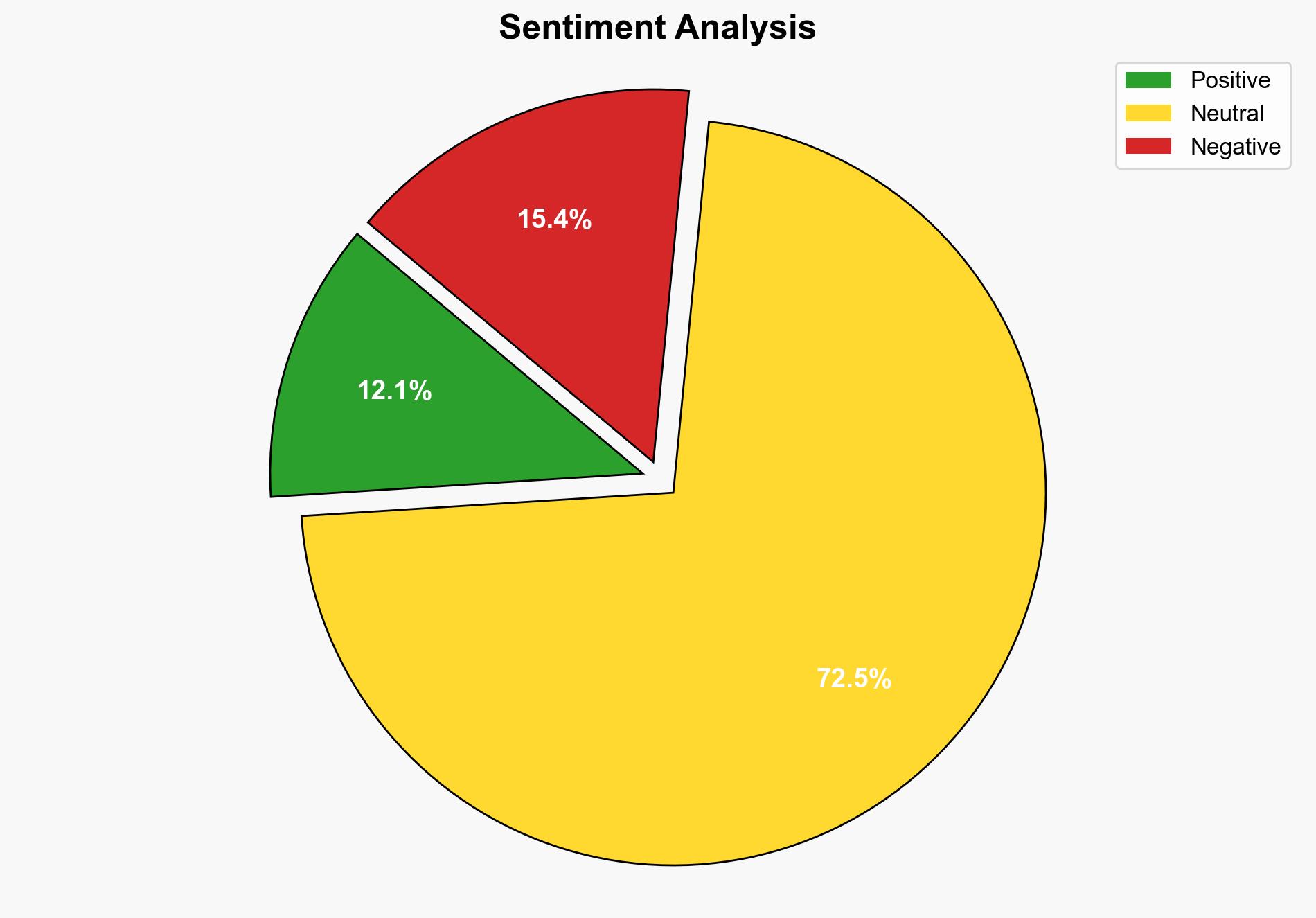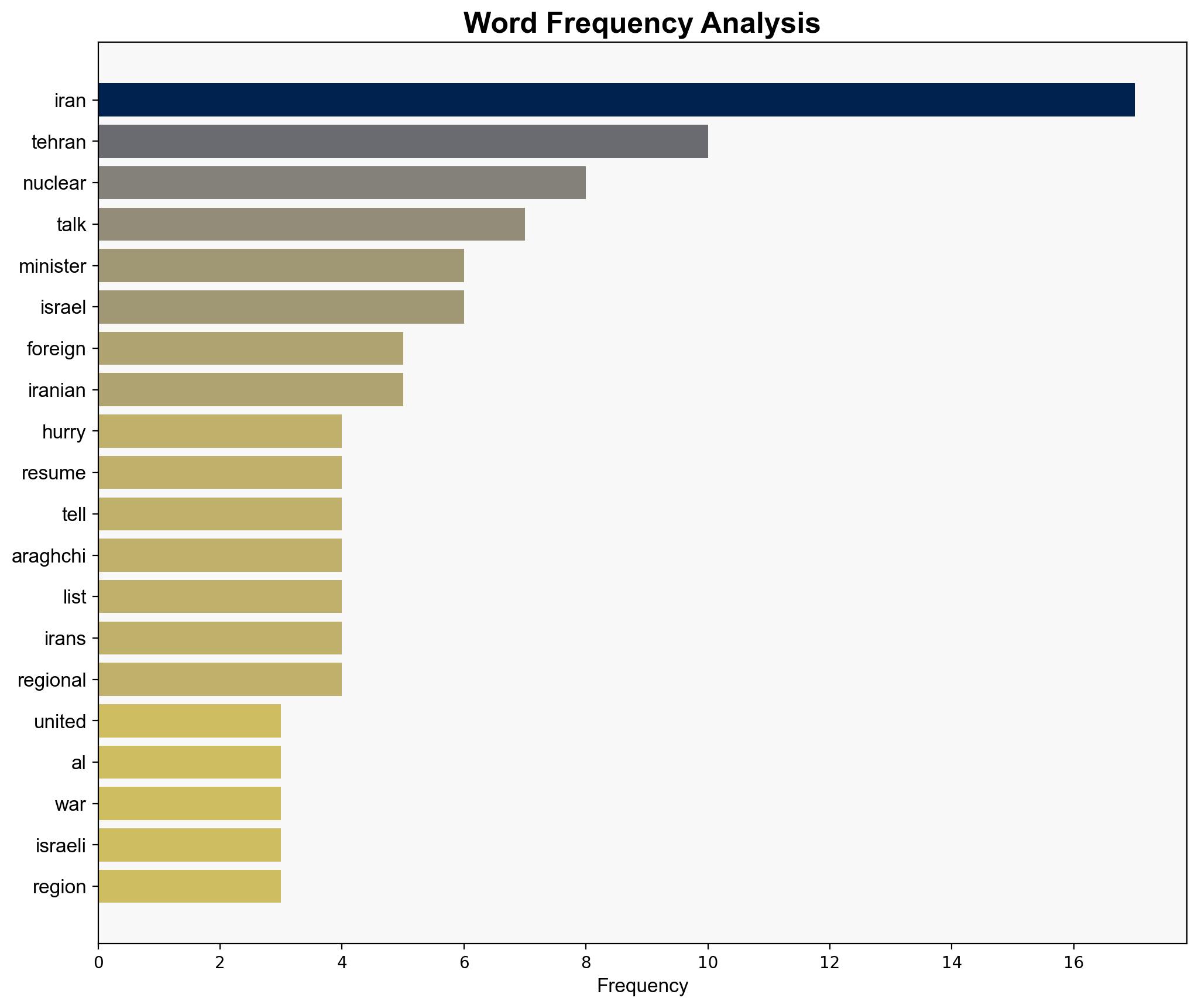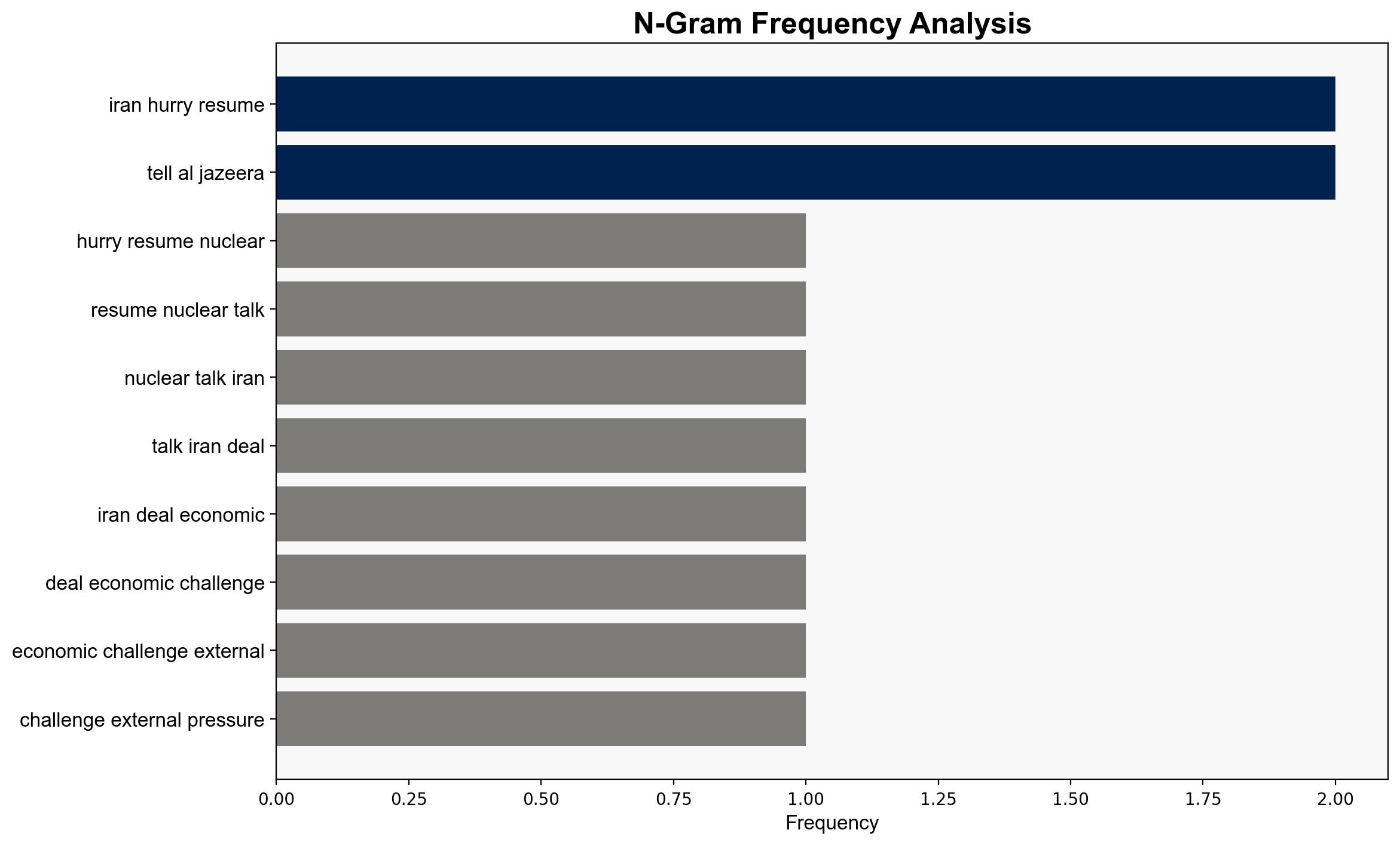Iran not in hurry to resume nuclear talks with US – Al Jazeera English
Published on: 2025-11-03
Intelligence Report: Iran not in hurry to resume nuclear talks with US – Al Jazeera English
1. BLUF (Bottom Line Up Front)
Iran’s reluctance to resume nuclear talks with the US appears to be a strategic posture aimed at leveraging geopolitical dynamics and regional alliances. The most supported hypothesis suggests Iran is using this delay to strengthen its negotiating position. Confidence Level: Moderate. Recommended action includes diplomatic engagement with regional allies to pressure Iran towards negotiations.
2. Competing Hypotheses
1. **Hypothesis 1**: Iran is delaying talks to strengthen its negotiating position by building regional alliances and leveraging geopolitical tensions.
– **Supporting Evidence**: Iran’s foreign minister emphasizes equal positioning and mutual interest, indicating a desire to negotiate from a position of strength. Iran’s engagement with regional players like Oman and criticism of Israel suggest a strategy to consolidate regional support.
2. **Hypothesis 2**: Iran’s delay is primarily due to internal economic challenges and the impact of sanctions, which limit its capacity to engage in meaningful negotiations.
– **Supporting Evidence**: Economic challenges and external pressures are cited, with sanctions reimposed by the UN and additional restrictions from European powers affecting Iran’s economy and diplomatic flexibility.
3. Key Assumptions and Red Flags
– **Assumptions**:
– Hypothesis 1 assumes Iran can effectively leverage regional dynamics to its advantage.
– Hypothesis 2 assumes economic pressures are the primary constraint on Iran’s negotiation posture.
– **Red Flags**:
– Potential overestimation of Iran’s regional influence.
– Lack of detailed economic data to fully assess the impact of sanctions.
– Possible deception in Iran’s public statements to mask true intentions.
4. Implications and Strategic Risks
– **Geopolitical Risks**: Continued delay in negotiations could escalate tensions with Israel and the US, potentially leading to military confrontations.
– **Economic Risks**: Prolonged sanctions could further destabilize Iran’s economy, leading to internal unrest.
– **Cybersecurity Risks**: Increased cyber activities from Iran as a means to counteract diplomatic and economic pressures.
– **Psychological Risks**: Heightened regional tensions could lead to increased propaganda and misinformation campaigns.
5. Recommendations and Outlook
- Engage with regional allies to apply diplomatic pressure on Iran to resume talks.
- Enhance intelligence gathering on Iran’s economic conditions to better assess negotiation leverage.
- Scenario Projections:
– **Best Case**: Iran resumes talks, leading to a renewed agreement and regional stability.
– **Worst Case**: Breakdown in diplomacy results in military conflict and regional destabilization.
– **Most Likely**: Continued diplomatic stalemate with intermittent regional tensions.
6. Key Individuals and Entities
– Abbas Araghchi
– Badr bin Hamad al Busaidi
– Benjamin Netanyahu
– Fatemeh Mohajerani
7. Thematic Tags
national security threats, geopolitical strategy, regional alliances, economic sanctions





